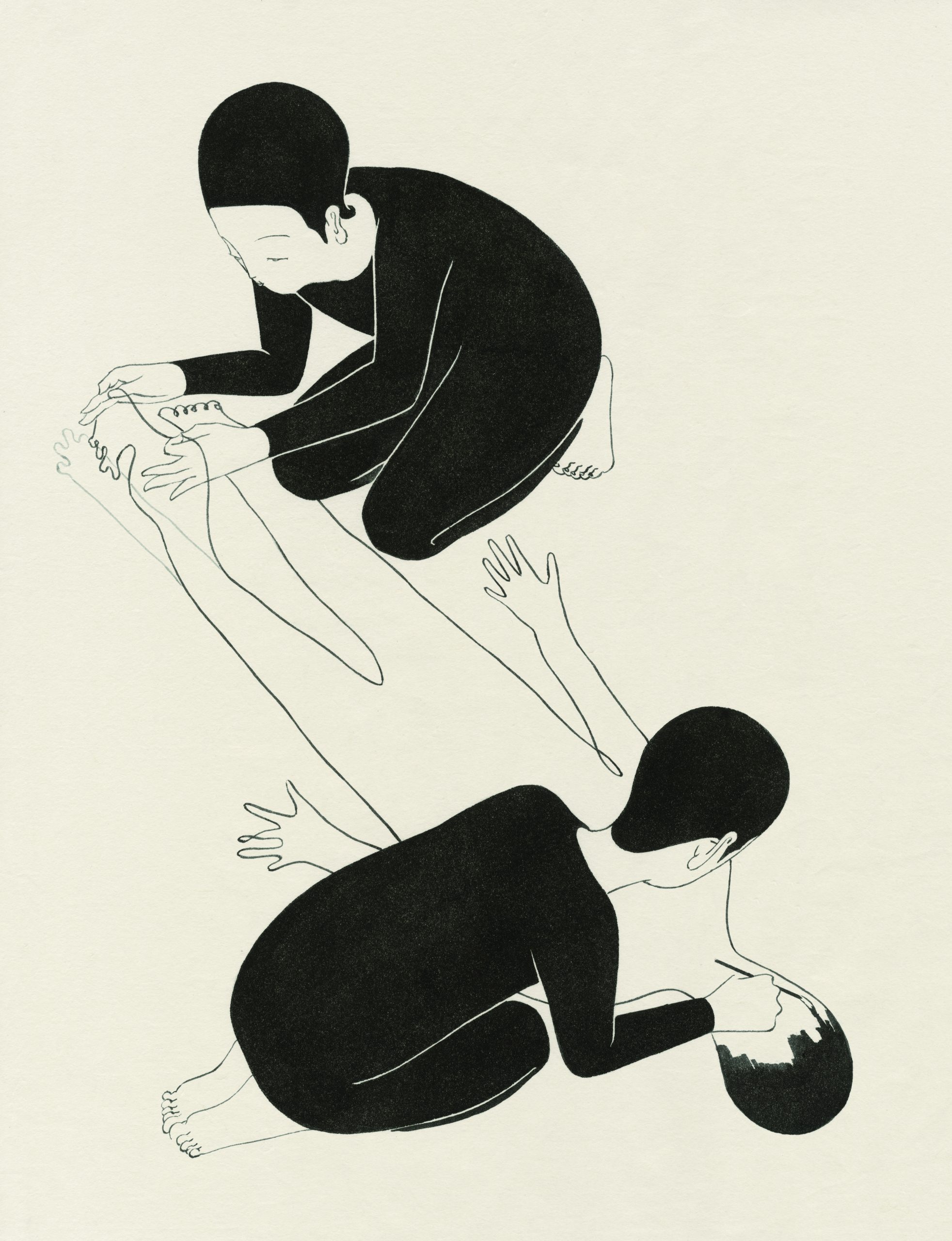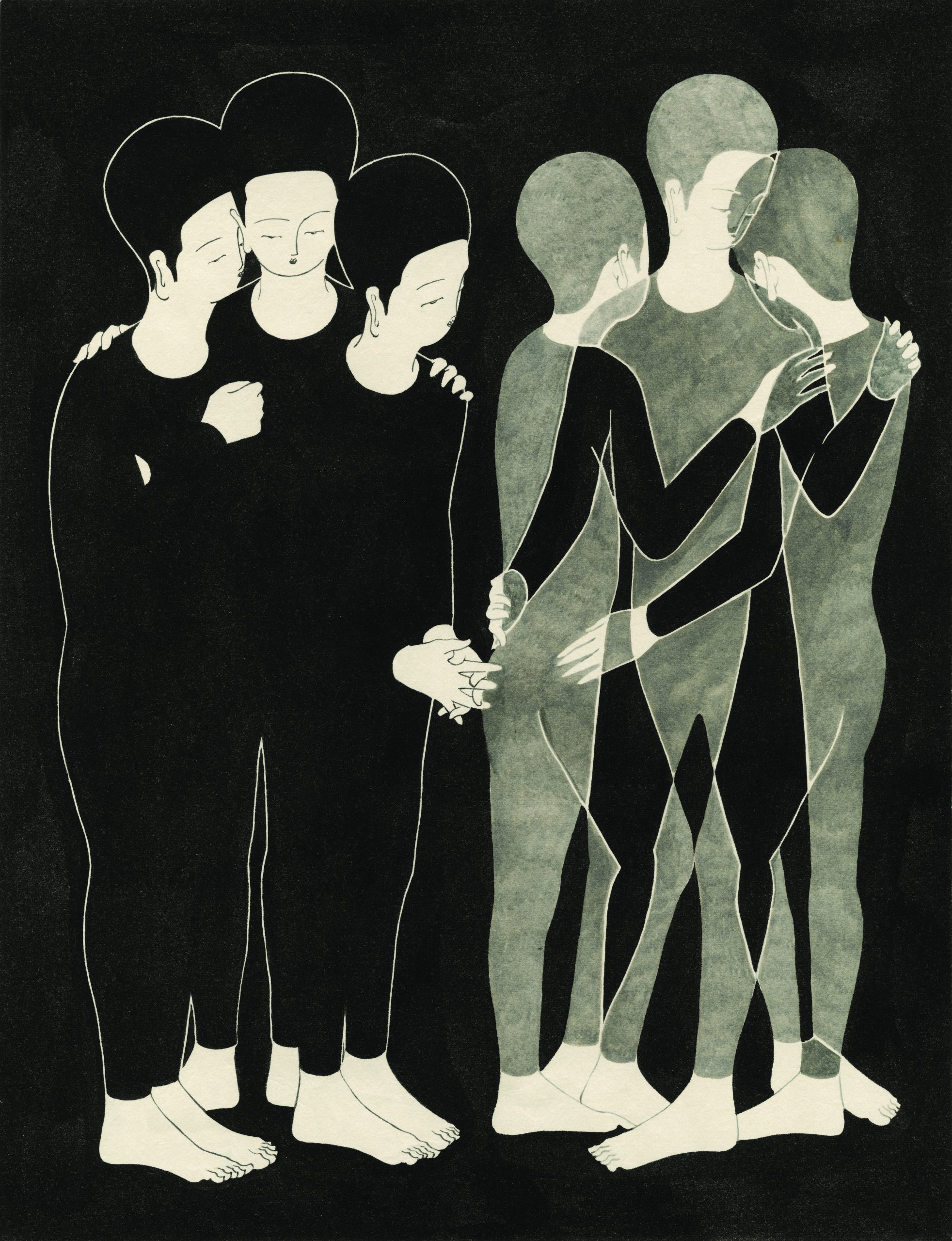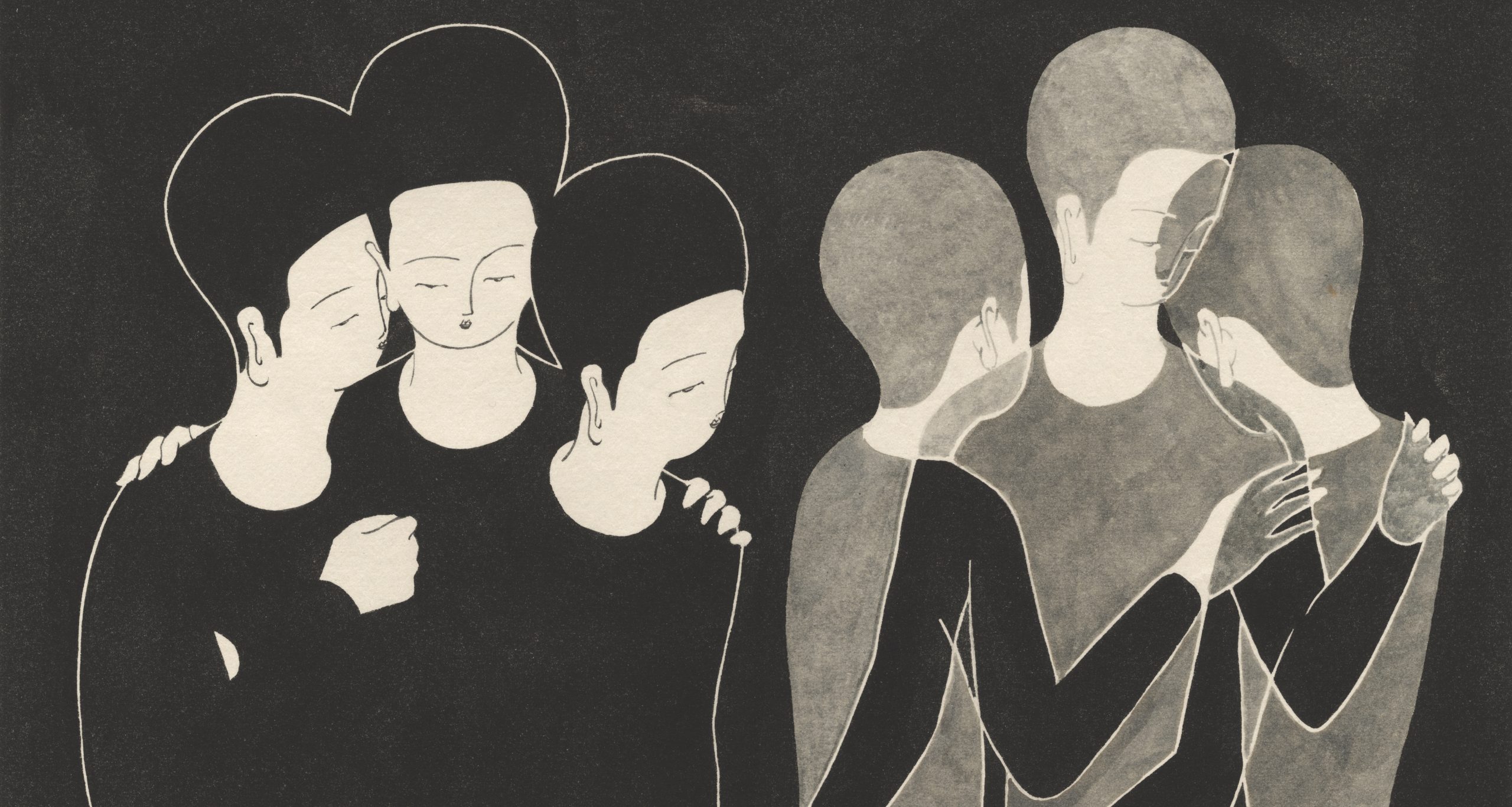Bruno Maçães was Portugal’s secretary of state for European affairs from 2013 to 2015 and is now a senior adviser at Flint Global and a member of the European Council on Foreign Relations. His two most recent books are “History Has Begun” and “Geopolitics for the End Time.”
Three or four years ago, as I drove around Beijing visiting officials and intellectuals, I kept hearing the same message. In my experience, the only moment when a Chinese intellectual or official should be taken literally is when he or she is walking a guest to the car. With no one around and no time to add any commentary, a single sentence can speak volumes. And the sentence I was hearing was this: “Always remember that China is a civilization rather than a nation-state.”
This is not a new idea — far from it. Nor is it a Chinese idea. But having received official sanction, the concept was being used to convey an important and often ignored message: The myth that China is destined to be assimilated to a Western model of political society is over. From now on, the Chinese would be treading their own “Sonderweg” — special path. Progress with Chinese characteristics.
As a civilization state, China is organized around culture rather than politics. Linked to a civilization, the state has the paramount task of protecting a specific cultural tradition. Its reach encompasses all the regions where that culture is dominant.
The importance of this concept became more obvious to me in India during a conversation with Ram Madhav, the general secretary of the ruling Bharatiya Janata Party. After a conference in Delhi, he explained: “From now on, Asia will rule the world, and that changes everything because in Asia, we have civilizations rather than nations.”
The exact nature of those changes was left unsaid. One immediate implication is the role of the diaspora. The new India under Prime Minister Narendra Modi would be tightening ties with the large Indian diaspora in the Americas, Great Britain and the Gulf, among other places. Why not claim V.S. Naipaul as an Indian writer, for example? Naipaul was born in Trinidad and Tobago, went to Oxford and lived most of his life in London. But so what — he expresses the Indian civilization’s ways of feeling and thinking.
“Linked to a civilization, the Chinese state has the paramount task of protecting a specific cultural tradition.
For a civilization state, cultural ties are potentially more important than the mere legal status of citizenship. As India’s recent Citizenship Amendment Act exemplifies, culture may even determine who can acquire Indian citizenship. The bill fast-tracks citizenship for immigrants from Pakistan, Bangladesh and Afghanistan — but not if they are Muslim. This is in line with what the ruling ideology in the country increasingly suggests: While you do not have to be Hindu to be an Indian, you do need to know, respect and perhaps even admire the Hindu way.
By affirming that India is a civilization, the Modi administration is consigning the opposition — the Indian National Congress — to the perilous role of a Westernizing force intent on measuring Indian success by the yardstick of a foreign system. The ideas that Congress had presented as too obvious to need much defense — secularism and cosmopolitanism — are seen as cultural imports from which India has to free itself. Naipaul had spoken of India as a wounded civilization, and he may have had a point, but contemporary India is a wounded civilization reasserting itself. Nation-states are a Western invention, naturally vulnerable to Western influence. Civilizations are an alternative to the West.
The BJP’s strong victory in India’s 2019 election, where it captured more than 300 further seats in the lower house of Parliament, shows how powerful that attitude turned out to be. As the political theorist Pratap Bhanu Mehta put it, Modi was able to convince voters that they should rise against a power structure that is essentially made up of Anglicized elites and that a Western philosophy of tolerance had become a symbol and a practice of contempt for Hinduism. There was a time when that liberal philosophy was taken seriously almost everywhere. Many of the independence movements in what used to be called the “third world” fully subscribed to it and used the language of human rights and the rule of law against the European colonizer.

The shift now taking place is arguably deeper and more radical. By accusing Western political ideas of being a sham, of masking their origin under the veneer of supposedly neutral principles, the defenders of the civilization state are saying that the search for universal values is over, that all of us must accept that we speak only for ourselves and our societies.
The world of the civilization state is the natural political world. Think of how states are built and how they expand. If a state has developed a successful formula to organize social relations and collective power, it will tend to absorb its neighbors. As it expands and concentrates new forms of wealth, social life will become increasingly complex. Myths will be created, the arts and sciences will prosper. Within its dominion, some possibilities will be opened while others are irredeemably closed. A way of life — a way to see the world and interpret the human condition — will develop. Outside the realm, other states will offer alternatives, but because these alternatives are in turn different ways to think and to live, states are coextensive with civilizations and subordinate to the civilizational form.
The modern West broke with this mold. From the perspective of what had come before, Western political societies had oddly misplaced scientific ambitions. They wanted their political values to be accepted universally, much like a scientific theory enjoys universal validity. In order to achieve this — we shall have occasion to doubt whether it was ever achieved — a monumental effort of abstraction and simplification was needed.
“Nation-states are a Western invention, naturally vulnerable to Western influence. Civilizations are an alternative to the West.”
Western civilization was to be a civilization like no other. Properly speaking, it was not to be a civilization at all but something closer to an operating system. It would not embody a rich tapestry of traditions and customs or pursue a religious doctrine or vision. Its principles were meant to be broad and formal, no more than an abstract framework within which different cultural possibilities could be explored. By being rooted in tolerance and democracy, Western values were not to stand for one particular way of life against another. Tolerance and democracy do not tell you how to live — they establish procedures, according to which those big questions may later be decided.
Since that is the very definition of a civilization state — to promote and defend one way of life against all alternatives — modern Western political societies had to invent a new political form. The values being defended were meant to become universal, but in practice, the idea of a world-state was never very popular. After all, these universal values were sufficiently universal to leave ample room for differences of implementation. And they were so abstract that many questions were left open, needing to be decided in different ways according to local circumstances.
The concept of a nation-state allowed for some level of diversity, but universal values were still meant to provide the constitutional framework under which each individual nation ruled itself. These universal values stood for the negation of the civilization state and affirmed the freedom to experiment with different ways of life. But if widely accepted, they could help build global institutions and rules, reducing the likelihood of state conflict. Over the last few decades, a world-state remained a utopia, but a world society seemed to advance.
“By accusing Western political ideas of being a sham, the defenders of the civilization state are saying that the search for universal values is over.”
But then the civilization state struck back. The problem with Western universalism was twofold. First, Western values seemed to many people living in Asia or Africa as just one alternative among many. The promise that traditional ways of life could be preserved in a liberal society was a fatal conceit. Were Turkey or China or Russia to import the whole set of Western values and rules, their societies would soon become replicas of the West and lose their cultural independence. While this process was seen as the necessary price of becoming modern, cultural assimilation kept its prestige. But lately, doubts have been growing about whether it is really necessary to imitate Western nations in order to acquire all the benefits of modern society. There was a second difficulty: Western values and norms still needed to be interpreted and enforced, and the most powerful nations in the West had always arrogated that task to themselves.
It is remarkable, when one thinks about it, that every controversial issue being decided in a successful democracy such as India should be subject to a final determination of its legitimacy by Western political and intellectual authorities. No one seems to take seriously the possibility that an editorial in The Hindu could settle the issue, but the leading newspapers in New York, Washington or London gladly take up the task. Cultural assimilation meant political dependence.

If, to all appearances, we have returned to a world of civilization states, the root cause is the collapse of the concept of a world civilization. American political scientist Samuel Huntington started from this realization, arguing in one of the starkest passages of his book “The Clash of Civilizations” that “the concept of a universal civilization helps justify Western cultural dominance of other societies and the need for those societies to ape Western practices and institutions.” Universalism is the ideology of the West for confronting other cultures. Naturally, everyone outside the West, Huntington argued, should see the idea of one world as a threat.
I believe Huntington was right, but only half right. It is true that people in Russia, China, India and many other countries increasingly see the concept of Western civilization through a different prism, as one civilization among many, with no particular claim to universality. That in itself is a mere intellectual determination. What follows is more consequential: If the West feels entitled to pursue its particular vision with all the tools of state power — in many cases, even military power — why should others refrain from doing the same? Why should they refrain from building a state around their own conception of the good life, a state with a whole civilization behind it? Their ambitions were more modest in any event — they were meant to be one alternative among many.
What Huntington failed to see was that the Western conceit of a world civilization has not simply disappeared. We have not returned to the world of the Hapsburgs, Ottomans and Mughals — not even in the garb of a televised Game of Thrones. Ours is a thoroughly modern and technological world, where distance is no longer sufficient to keep civilizations apart, and where borders are a shadow of their former selves. In this world, different civilizations are universal in practice if not in aspiration; they may well compete for global power, but they all belong to a common, increasingly integrated political and economic landscape.
“Europe may have been convinced that it was building a universal civilization. As it turned out, it was merely building its own.”
The return of the civilization state poses a delicate problem for the West. Remember that to a great extent, Western societies have sacrificed their specific cultures for the sake of a universal project. One can no longer find the old tapestry of traditions and customs or a vision of the good life in these societies. Their values tell us what we can do but are silent on what we should do. And then there is this question, particularly acute in Europe: Now that we have sacrificed our own cultural traditions to create a universal framework for the whole planet, are we now supposed to be the only ones to adopt it?
Responses vary. There are those in Europe — the populists, to use a catchy term — who want to turn the clock back and recover the wholesome content of a traditional Christian society. But many more believe that the core of a modern, secular European civilization will remain valid even if the rest of the world takes a different path. The European Union is in the process of being reconfigured as a civilization state, a political entity aggregating all those who live by a specific value system and using political tools to protect European civilization from the attacks of its enemies. The universal framework of rules can be refurbished for a different purpose. Previously, it was meant to accept every world culture under its wings, but now it is the root of a specific way of life: uncommitted, free, detached, aesthetic. Liberated from its commitment to an increasingly abstract and rarefied framework of rules, European liberalism can focus on developing the concrete possibilities contained within itself. This is mainly work for artists, writers and technologists.
Europe may have been convinced that it was building a universal civilization. As it turned out, it was merely building its own. The recognition of this fact will be difficult and painful, but it seems inevitable. I first noticed this transformation when European politicians started to claim that Europe is the best place in the world to live in. Rather than defending universal values such as democracy or human rights, they increasingly defend one way of life against every alternative — a competition with winners and losers. The continent that hoped to move beyond the logic of civilization is very close to converting to it, as is America. When that happens, the triumph of the civilization state will be complete.





